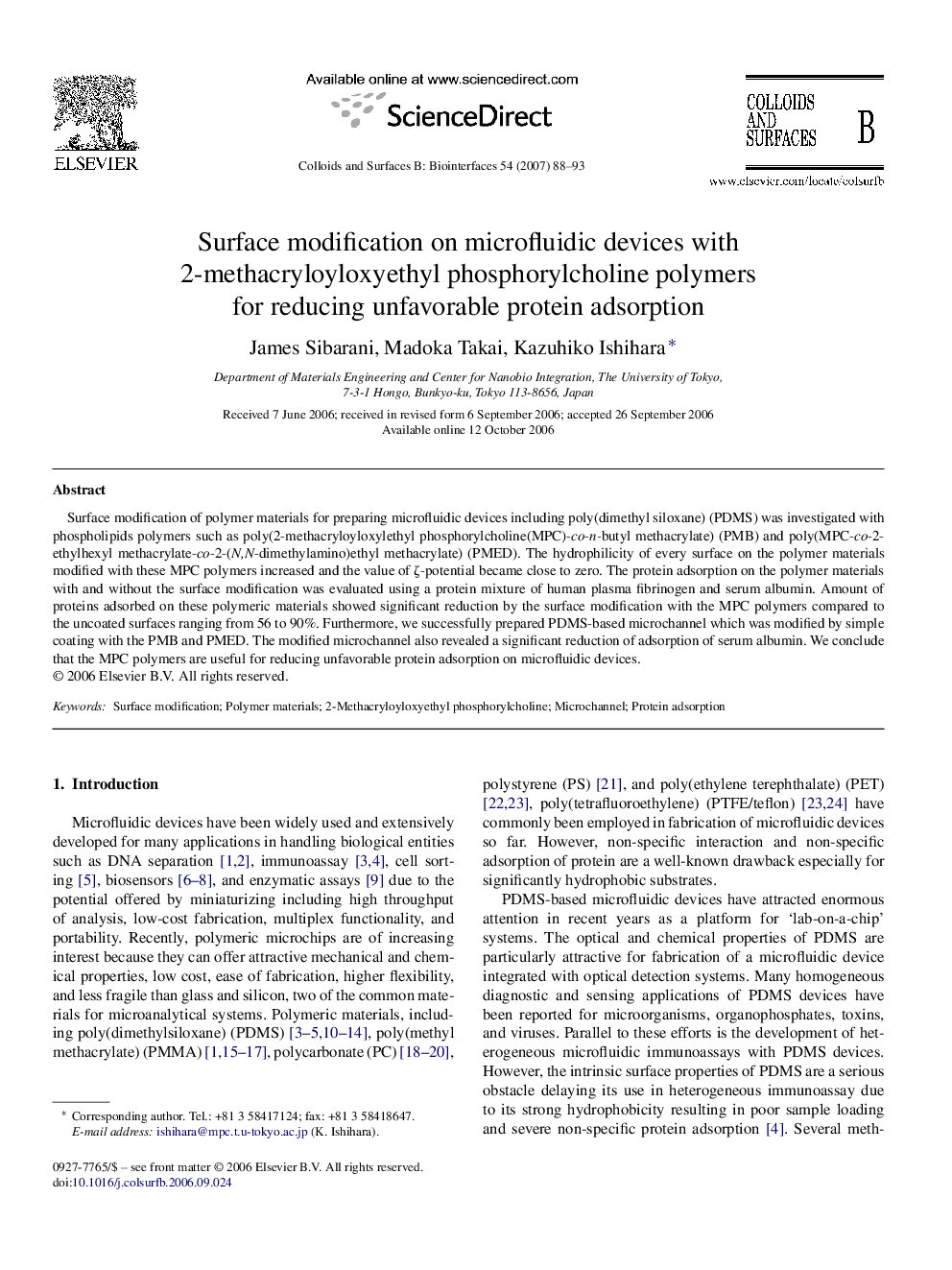| Article ID | Journal | Published Year | Pages | File Type |
|---|---|---|---|---|
| 602780 | Colloids and Surfaces B: Biointerfaces | 2007 | 6 Pages |
Surface modification of polymer materials for preparing microfluidic devices including poly(dimethyl siloxane) (PDMS) was investigated with phospholipids polymers such as poly(2-methacryloyloxylethyl phosphorylcholine(MPC)-co-n-butyl methacrylate) (PMB) and poly(MPC-co-2-ethylhexyl methacrylate-co-2-(N,N-dimethylamino)ethyl methacrylate) (PMED). The hydrophilicity of every surface on the polymer materials modified with these MPC polymers increased and the value of ζ-potential became close to zero. The protein adsorption on the polymer materials with and without the surface modification was evaluated using a protein mixture of human plasma fibrinogen and serum albumin. Amount of proteins adsorbed on these polymeric materials showed significant reduction by the surface modification with the MPC polymers compared to the uncoated surfaces ranging from 56 to 90%. Furthermore, we successfully prepared PDMS-based microchannel which was modified by simple coating with the PMB and PMED. The modified microchannel also revealed a significant reduction of adsorption of serum albumin. We conclude that the MPC polymers are useful for reducing unfavorable protein adsorption on microfluidic devices.
